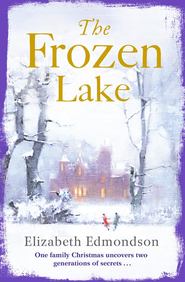По всем вопросам обращайтесь на: info@litportal.ru
(©) 2003-2024.
✖
The Art of Love
Автор
Год написания книги
2018
Настройки чтения
Размер шрифта
Высота строк
Поля
‘Yes, but emotion is very draining, you need to keep your strength up.’
He said goodbye to the luscious Irene, the bosomy barmaid who presided over the bar at the Nag’s Head, and they went outside.
‘Touch of frost, tonight,’ said Oliver. He lifted his hand as a cab came in sight, and opened the door for Polly.
Sitting in the dark, slightly smelly interior, Polly asked, ‘How much does it cost to get to France? Oh, I suppose that’s a silly question. You’d travel first class.’
‘Third class would be about ten pounds,’ Oliver said. ‘Having second thoughts?’
‘I haven’t got ten pounds,’ Polly said regretfully. ‘Having ten shillings to spare at the end of the week would be a minor miracle.’
‘Get some more of those book jackets you do.’
‘And there’s my work in Lion Yard to consider. I don’t want Mr Padgett finding someone else to take my place.’
‘It seems that you’ll have to give it up in any case, so why not a month sooner?’
‘No, Oliver. It’s tempting, but I can’t come, and that’s that.’
SIX
Max Lytton arrived at the Feathers Inn before Inspector Pritchard. It was an old-fashioned pub, not so very different from when it was built in the seventeenth century, with its polished wooden boards and a warren of narrow passages and staircases that led into unexpected rooms or out into one of its several yards. It had been a haunt of highwaymen in its heyday, and it was easy to imagine booted and cloaked men lurking in dark corners or in the cobbled courtyard, where the stables had been turned into a bar.
Max went into the downstairs dining room, a discreet place, with the tables set against the walls and screened by high-backed wooden seats. A perfect place for private conversation, which was what Max wanted. A log fire burned in the wide stone fireplace, and there was sawdust on the floor. He found an empty table and sat down with a tankard of the pub’s famous ale.
‘I’m waiting for a friend,’ he said to the waiter who was hovering to take his order, and as he spoke, he saw Pritchard standing at the door. Pritchard hesitated, looking round and then, as Max rose, lifted a hand in greeting and came over to join him.
A pint of bitter was brought for Inspector Pritchard, and the waiter came back to take their order. He could recommend a cut off the joint of Welsh lamb, excellent today or, of course, there was the inn’s renowned steak and kidney pudding.
‘They make it in the traditional way, with oysters,’ Max told Pritchard.
‘I’m not a great man for shellfish,’ Pritchard said in his lilting Welsh voice. ‘I’ll have the lamb, since it comes from my country, and our sheep are the best in the kingdom.’
The waiter went away, and the two men regarded one another in silence. They had met two years before, when Inspector Pritchard was a detective sergeant, hoping for promotion. He had been working on a murder case, and Max, obtaining information that the police had no access to, had passed it on to the eager policeman. The case had been solved, a very unpleasant criminal brought to justice, and Pritchard had got his promotion.
‘I take it this is a professional meeting,’ said Max.
Pritchard’s soft brown eyes were guileless, but Max knew better than to take the look of sleepy indifference at face value. Pritchard was a wily man, who possessed a strong moral sense coupled with a healthy cynicism as to the essential evil dwelling within his fellow beings.
‘Professional, yes, but a matter best not tackled through the usual channels, do you see?’
‘Unofficial business? That doesn’t sound like your outfit.’
‘Not precisely unofficial, just best if the details are kept between the two of us. You have your masters and I have mine. And yours are happy for me to talk to you about this. They, too, want to keep it unofficial for the time being.’
To his friends and relatives and to the closed world of London society, Max Lytton was no more than a man about town. An attractive man, surprisingly still a bachelor, despite the best efforts of debs and their mamas. He came from an old family, had considerable private means — a fortune inherited from a great aunt had come as a surprise to a younger son and a source of discontent to his father and older brothers. Because of this, he could live the life he wanted; a life to which his father took endless exception. ‘Didn’t fight for your country in the war, now you live an idle life, of no value to yourself nor anybody else. We weren’t put upon this earth to be comfortable, but to leave it a better place, I don’t see you doing that.’
Max knew there was no point in remonstrating or arguing with his father, who knew perfectly well that it was lameness from a childhood dose of polio that had prevented him being butchered in the trenches. The fact that he had spent a hardworking and successful war in Military Intelligence meant nothing to his father, a retired general. ‘Desk job, waste of time, the place for cowards and men too old or effeminate to fight.’
Nor did his father have any idea that he had been one of the few men from his department kept on after the war ended, when the intelligence services were largely wound up, with the remnants tucked away in a forgotten corner of Whitehall, starved of funds. Although recently, things had begun to change, the situation in Russia was ringing alarm bells, and to the knowledgeable men who had experience of Germany, so were the repercussions of the Treaty of Versailles.
‘Excuse me, sir.’ The waiter put plates down in front of them, and then returned with a steaming pie which he set in front of Max. Another waiter arrived with a trolley, to cut thick slices of the succulent lamb for Pritchard. Dishes of potatoes, carrots and cabbage were placed on the table, and the waiters withdrew.
Pritchard spooned redcurrant jelly on to his plate beside his lamb. Max plunged a spoon into the golden crust of his pie and transferred a generous portion to his plate.
‘If it’s a police matter, I don’t see what it has to do with us,’ Max said.
‘Then you haven’t heard that I was transferred last year,’ said Pritchard. ‘To Special Branch.’
That surprised Max. The soft-spoken Welshman had a keen mind and that extra grain of intuition that singled out the exceptional policeman from the ordinary. But Special Branch? Perhaps it was a sign of the times, an indication of how alarmed the powers that be were about the rising anger and intensity of those who felt life hadn’t offered them a fair deal. Which, in many cases it hadn’t. Extremism was on the rise, certainly in continental Europe, possibly now even in England.
In which case, Special Branch would need capable officers like Pritchard. There was, after all, more to maintaining the peace of the realm than catching criminals.
Special Branch and the intelligence services worked in an uneasy alliance, with some bitter spats about territorial demarcations. If Pritchard’s and Max’s superiors were working together on this, it would mean that they were after someone who had dealings that went beyond the merely local and criminal.
‘Out with it,’ he said. ‘What particular game is afoot?’
‘I don’t see you as Watson, nor myself as Sherlock Holmes,’ said Pritchard, spearing a roast potato and chewing it carefully. He wiped his mouth with his napkin and took a draught of beer. ‘I believe you know Sir Walter Malreward?’
‘Ah,’ said Max. ‘Malreward. Yes.’
‘By reputation, in the way of business, or personally?’
‘He is a man much in the public eye, and I have a slight personal acquaintance with him. As to his business affairs, no, I have nothing to do with them.’
Pritchard was playing with him. Pritchard must know perfectly well who Sir Walter’s constant companion was, to use the coy words of the lower kind of newspaper. Mrs Harkness. Cynthia Harkness, recent divorcée, and Max’s sister.
‘Surely he isn’t up to any mischief? He runs what passes for a reputable publishing empire, gives money to the poor, is active in middle-of-the-road politics, keeps his nose perfectly clean.’
‘Do you like him?’
Max took refuge in his tankard of beer. Like, dislike, what did that have to do with it? ‘If your lot are interested in Malreward, it’s hardly relevant how I may or may not feel about him. I don’t go in for feelings.’
‘I know that. But you’re a fair judge of a man, for all that.’
‘I wouldn’t climb a mountain with Malreward on the other end of the rope, if that’s what you mean.’
‘I didn’t know you went in for climbing,’ said Pritchard, glancing down involuntarily to where he knew Max’s bad leg would be stretched out beneath the table.
‘I speak figuratively.’
‘He is said to be tough but honest in his business dealings.’
‘In which case you need to examine your sources more carefully,’ said Max. ‘No one gets to be as rich as Sir Walter is without being ruthless and sailing pretty close to the wind somewhere along the line. Risks are how fortunes are made. If you believe any businessman as successful as Malreward got there in any other way, I have some fairies at the bottom of my garden that I’m willing to sell to you for a reasonable sum.’
Pritchard smiled. ‘Leave the fairies to us Celts, Mr Lytton. No, but Sir Walter’s record appears to be cleaner than most. Which makes him a sensitive subject, which is why we’re here and not in my or your office. Our lords and masters like Sir Walter. There’s talk of him being offered a junior post in the government.’
Max frowned. It wasn’t unusual for there to be some official vetting of a man’s background before he was recommended for a difficult post or high honours, but it was hardly his line of work. ‘Surely they went into his habits and antecedents before he got his knighthood.’









